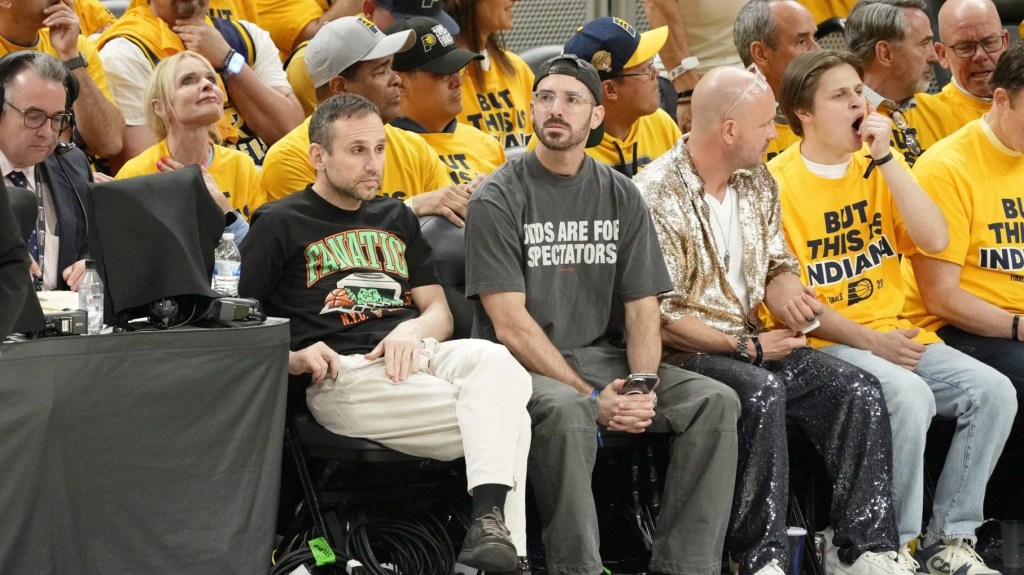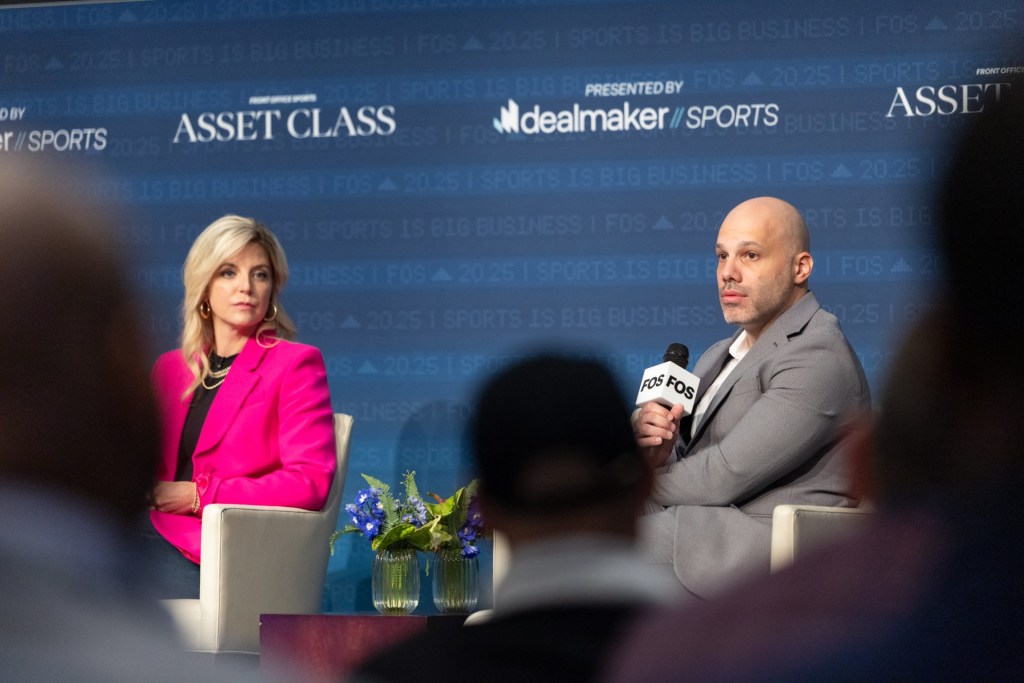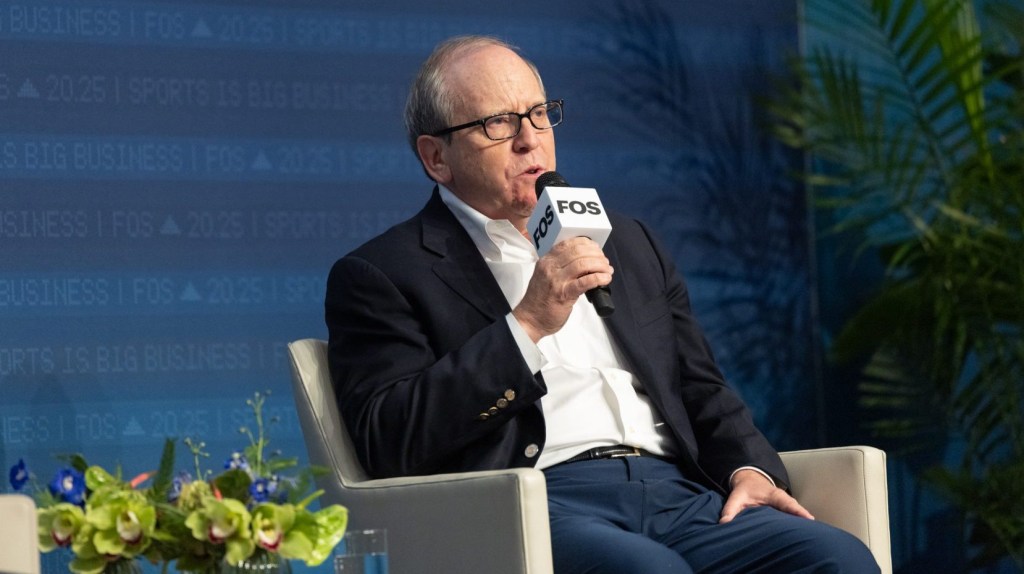Executives from DraftKings, FanDuel, Penn Entertainment, and BetMGM all touched on prediction markets during their most recent earnings calls, and the messages were essentially the same: They’re keeping tabs but not ready to pounce just yet.
This comes as industry sources have told Front Office Sports that prediction-markets merger activity is expected ahead of football season, the busiest time of year for sports betting. FOS has reported this summer that FanDuel and Kalshi held discussions about a deal that would include various betting efficiencies, and that DraftKings was in talks to buy Railbird Exchange, an upstart prediction-markets platform that recently gained federal licensure.
There’s still time for deals to go down before September, but the biggest sportsbook operators seem uncertain. The apparent pullback comes after Kalshi recently suffered its first significant legal setback, when a federal judge in Maryland ruled the company must comply with state gambling regulations.
Below, FOS recaps what the major operators are saying about prediction markets.
DraftKings
DraftKings posted strong business results for the second quarter, including revenue of more than $1.5 billion, a 37% increase compared to the same period last year, driven in part by “sportsbook-friendly outcomes”—meaning bad outcomes for bettors.
DraftKings CEO Jason Robins briefly mentioned prediction markets in opening remarks on the company’s earnings call, saying “we continue to monitor events surrounding federally regulated prediction markets and are actively exploring ways to enhance shareholder value through this opportunity.”
“As always, we value our relationships with both industry stakeholders and policymakers and we’ll work collaboratively as we evaluate next steps,” he added.
He was pushed on the topic during the call’s Q&A portion with analysts, and explained the company is “taking a measured approach.”
Robins declined to comment on any specific talks the company has been having, and said for the moment “we’re more in monitor mode in terms of active discussions like that.”
“A lot of what I think we need to see will come from watching how things unfold with others that are currently offering prediction markets and I think we’ll kind of have to see how that goes and evaluate it,” he said.
DraftKings maintained its fiscal year 2025 financial guidance of 32% year-over-year growth, but noted in a press release that its guidance “does not include the potential launch of a prediction markets offering.”
FanDuel
The Flutter Entertainment subsidiary touted strong performance with just under $4.2 billion in revenue for the second quarter, amounting to 16% growth “as our U.S. business continues to scale rapidly.” FanDuel updated its full-year 2025 guidance, saying it expects revenue to reach almost $17.3 billion, which would represent a 23% increase year-over-year.
CEO Peter Jackson earlier this year said the company was interested in the “potential opportunity” but he wasn’t “that confident” the sports prediction space would have a “significant impact” in states where sports betting is legal.
In a letter to shareholders issued ahead of Thursday’s earnings call, Jackson noted the “event contracts landscape continues to develop at pace.”
“We have two decades’ experience of operating the world’s largest betting exchange, the Betfair Exchange, which shares similar characteristics with event contracts, and this will help inform our views,” he said. “We are closely monitoring regulatory developments, and are assessing the opportunities and potential participation strategies this may present for FanDuel.”
He reiterated those comments on the earnings call. When pushed, he said it’s “clearly a fast-moving space” with “lots of important stakeholders” the company has to consider.
Penn Entertainment
Penn, which is partnered with ESPN on a betting endeavor that to date has not performed as well as the company had hoped, said it had “another solid quarter.” Its digital arm, which includes sports betting operations, posted about $316 million in revenue, up from almost $233 million over the same time period last year.
CEO Jay Snowden said earlier this year that the company was keeping tabs on prediction markets, which he called a “niche” market. He mostly reiterated that message during the Q2 earnings call and said “I wouldn’t expect us to be a first mover.”
“Not a lot new to say on predictive,” he said. “We’re monitoring. There’s a lot going on there, as you know, in terms of how state gaming regulators feel about predictive markets versus what the predictive market space is doing and expanding.”
Snowden added that if prediction markets “end up getting sort of embraced and legalized and regulated,” then the company could take some action. “We want to see how this plays out,” he said. “There’s a lot going on right now in the courts, as well as with the regulators across the country.”
BetMGM
BetMGM, owned by MGM Resorts International and U.K.-based Entain, boasted “strong underlying growth” with second-quarter revenue of $692 million, up 36% year-over-year.
CEO Adam Greenblatt made extensive comments on prediction markets, saying “we are monitoring this very, very closely” and noting the company is attuned to those who oppose the growth of prediction markets’ sports offerings, including a number of state regulators, dozens of attorneys general, and Native American tribes.
“They would argue that that is sports betting,” he said.
Yet, he maintained that BetMGM “won’t be caught flat-footed,” and said the company “has the ability” but not “the desire to be a first mover.”

















